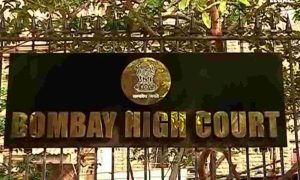
Facts of the Case:
In this case, the petitioner challenged the rejection letter dated 21.08.2025, whereby its application under Section 161 of the CGST Act, 2017 seeking rectification of an alleged error apparent on the face of record in the show cause notice was rejected.
The petitioner contended that the SCN failed to give credit to the taxes already paid and, therefore, sought rectification of this factual error under Section 161. The petitioner also independently challenged the SCN itself, alleging that it violated Section 6(2)(b) of the CGST Act, 2017, as interpreted by the Hon’ble Supreme Court in Armour Security (India) Ltd. v. Commissioner, CGST, Delhi East Commissionerate & Anr. The respondents rejected the rectification application on the ground that no apparent error existed in the SCN. Aggrieved, the petitioner approached the High Court, contending that the rejection was passed without affording a hearing and that the SCN was barred by Section 6(2)(b).
Issue: Whether an alleged factual inaccuracy in a show cause notice can be rectified under Section 161 of the CGST Act, 2017 as an “error apparent on the face of the record.” Whether the writ petition challenging the show cause notice and rejection of rectification application was maintainable when alternate remedies and adjudication proceedings were available.
Held that: The High Court stated that the expression “notice” in Section 161 must be read ejusdem generis with other instruments like “decision” or “order.” It applies only to notices that finally determine liability or cause prejudice, not to a mere show cause notice, which only initiates proceedings. Therefore, rectification of an SCN is not permissible under Section 161.
Further, a show cause notice merely initiates adjudication and imposes no binding demand. Any alleged factual or computation error can be addressed in the reply to the notice, which the adjudicating authority is bound to consider.
The writ petition was premature and intended to delay adjudication. Courts will not entertain challenges to SCNs unless jurisdictional error or breach of natural justice is clearly established. he applicability of Section 6(2)(b) involves factual determination of the scope and period of prior proceedings, which cannot be adjudicated in writ jurisdiction. The facts of Armour Security (India) Ltd. were distinguishable, as that case involved undisputed jurisdictional overlap.
The rejection of the rectification application without hearing did not cause prejudice. The Court observed that “there is no such thing as a technical breach of natural justice” when no apparent error exists and full opportunity remains available during adjudication.
The Court dismissed the petition as premature and devoid of merit. The plea under Section 6(2)(b) requires factual adjudication and cannot be entertained in writ jurisdiction. The Court, however, clarified that the petitioner is at liberty to file a detailed reply to the SCN, raising all grounds including reliance on Armour Security (India) Ltd., which the adjudicating authority must consider on merits.
Case Name: JSW TECHNO PROJECTS MANAGEMENT LIMITED & ANR. v. UNION OF INDIA & ORS. dated 09.10.2025
To read the complete judgement 2025 Taxo.online 2713


